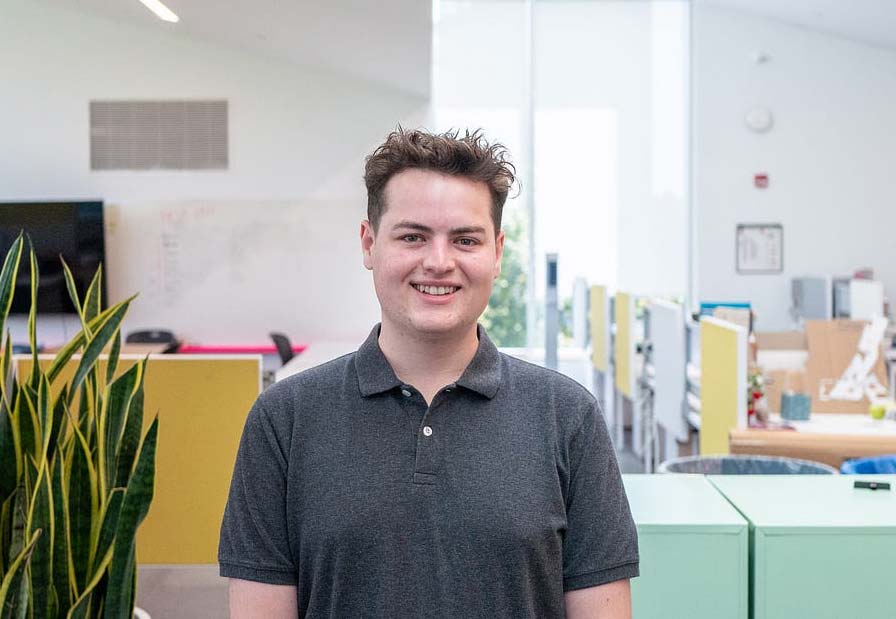Jack Bernard

Bachelor of Science in Urban Technology
Jack Bernard, B.S. Urban Tech ’27, interned with Seattle City Light in Summer 2025. The public utility company provides electricity to the city of Seattle and parts of its metropolitan area.
What motivated you to join the Urban Technology program?
I was always interested in computer science and engineering, but not enough to do it as a job. And I was always interested in urban planning and urbanism, but not enough to become a planner. So urban technology was kind of the perfect combination of the two things.
What excites you about the field of urban technology?
What excites me most is the general interest in the field from everyone I’ve talked to outside of the university. So whether it be academics from other institutions, writers and authors who have been writing about the subject, or just people that I’ve talked to, everyone is interested in what we are doing in the program. People are ready to see what we’re going to bring to the world and what we’re going to do with what we’re learning.
What were some of your experiences as an intern with Seattle City Light?
Working with the public sector was super rewarding. It’s fulfilling to work on projects that I know will have an impact on the city for the next 10 to 15 years. Professionally, I’ve really enjoyed the opportunity to connect with people at the city and at the utility and learn more about the different departments and what they all do and how they’re making an impact.
What stood out to you about your internship?
My main task was to improve the performance evaluation process of how the utility determines if employees and contractors are doing a good job and how supervisors rate their employees, which hadn’t been updated since the ‘90s. It was really inequitable, it wasn’t efficient, and it wasn’t aligned with a bigger vision. Working on that project, I got to apply urban technology skills, like digitizing the form and service design. I was able to do some user experience research and understand how supervisors and employees view the process and how they’re going to use it to inform the design process.
How else have you been able to use your urban technology education in these projects?
The most applicable skills have been human-centered design and the iterative design process, engaging stakeholders and finding out why something should be the way it is without guessing. We’re actually asking and finding out the real problem from the people that will be using the service and the product. That’s been the most applicable thing: having that mindset of purpose that everything we do is made to benefit the end user.
How has this internship helped you in your future career goals?
It really solidified a lot of things. Networking and learning about all of the different avenues within a municipality and different avenues where I could apply my skills has been really rewarding. Talking to people about energy and public sector utilities has almost prompted a complete career shift. There’s so much opportunity for modernization in city government.
What would your ideal project be in this field?
I would like to do some civic technology projects and really modernize a lot of government processes with the power of data and in-house development. It’s frustrating seeing how capable so many individuals within government are and how eager they are to do good and make change but without many resources. I would like to work on policy reform and organizational changes in developing civic technology to enable better civic participation.
What are your aspirations after graduation?
I’m a totally open book. I’m not tying myself to anything. I think I would like to eventually end up in the public sector, but I’m open to gaining some private sector experience.
— Interview by Joshua Nicholson





